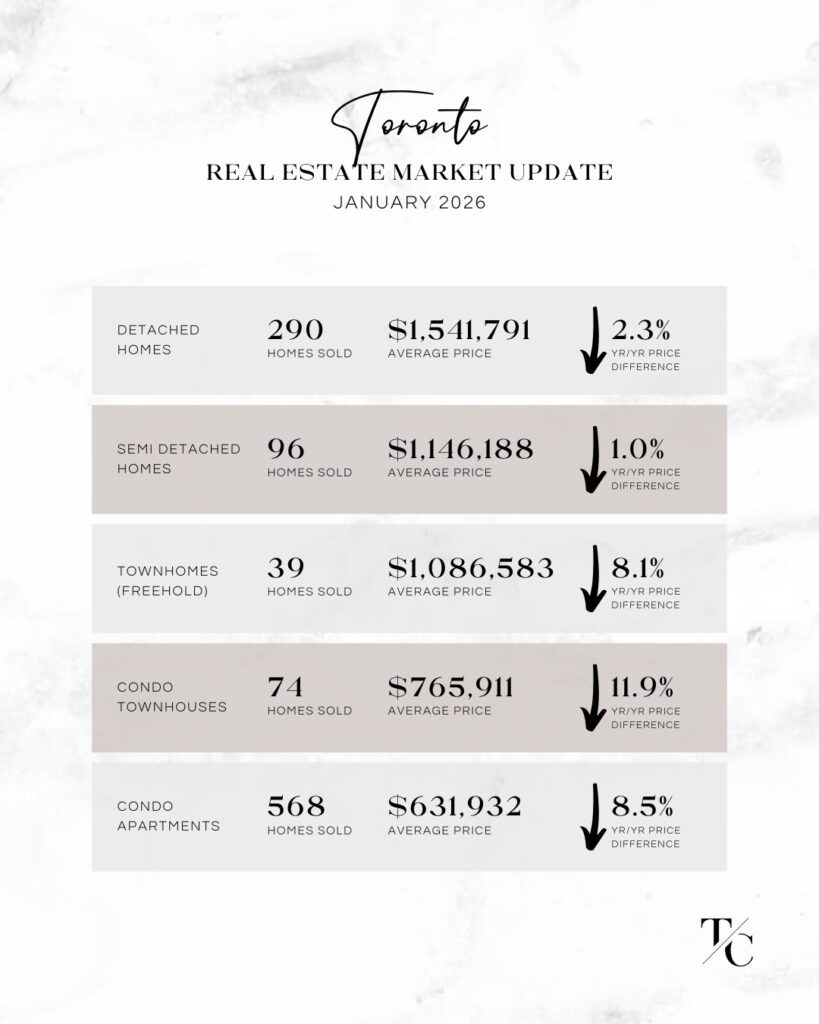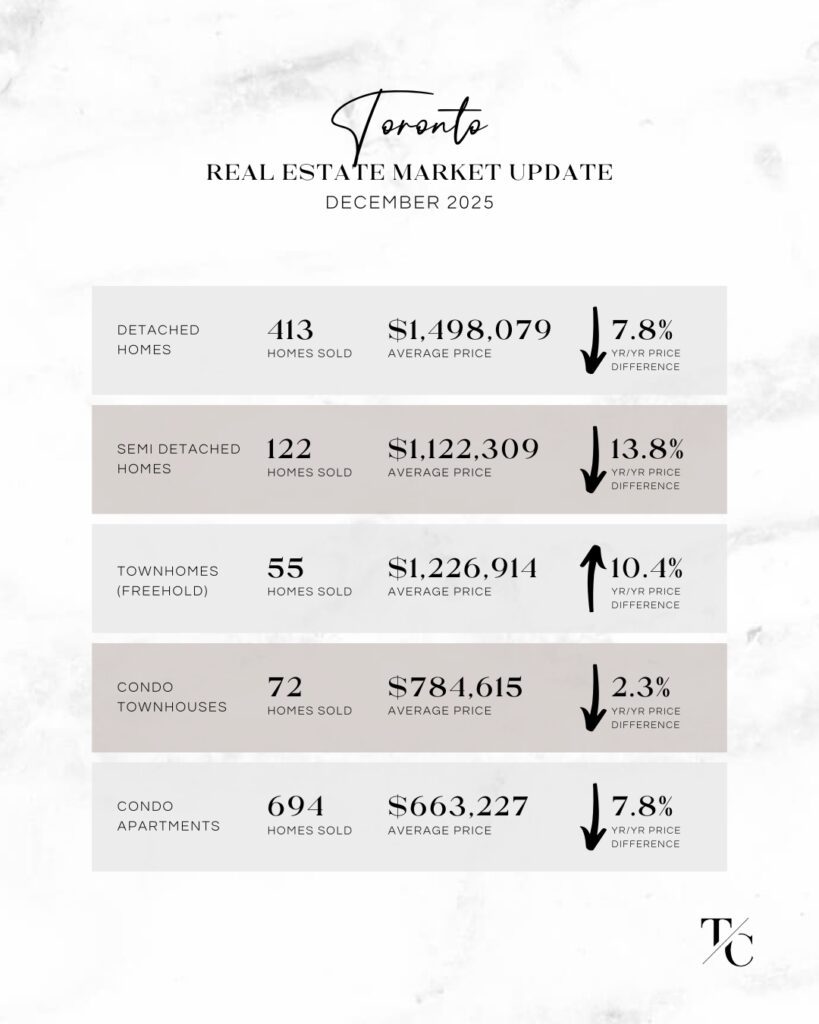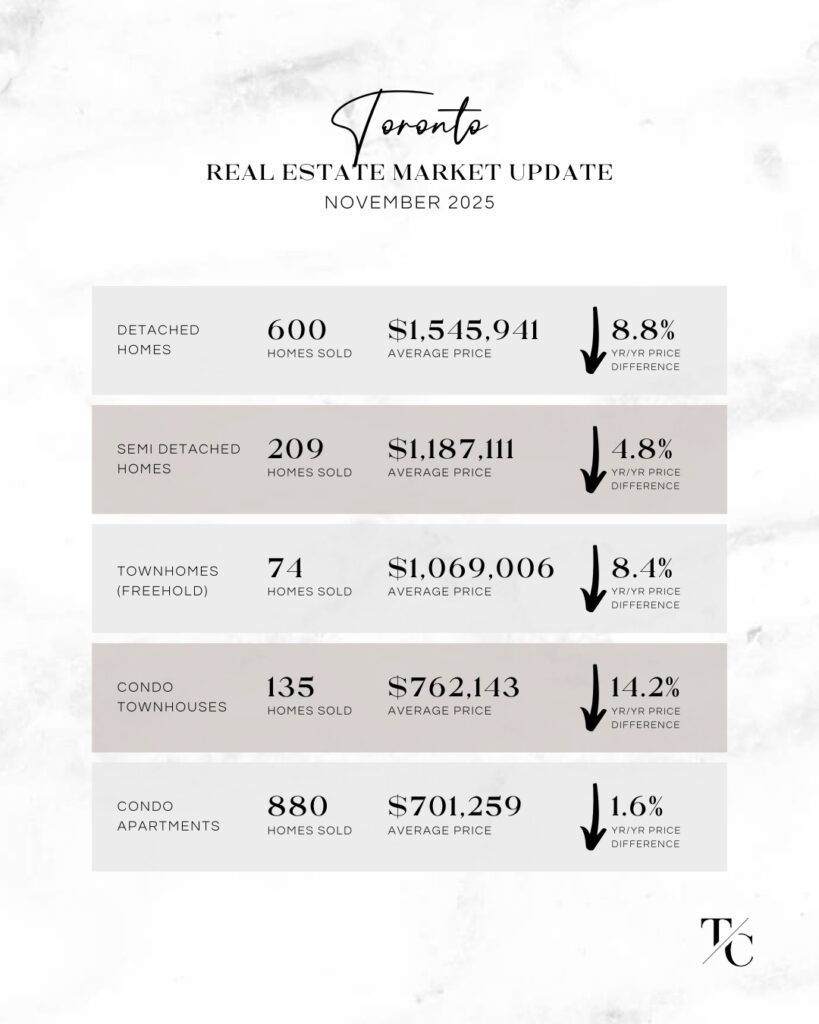When most people think about buying or selling a home, their minds are often occupied with mortgage rates, local market trends, or whether it’s a buyer’s or seller’s market. However, one less obvious factor that can significantly influence the real estate landscape is tariffs.
Yes, tariffs – those government-imposed taxes on imported goods – can have a ripple effect that touches everything from home prices to renovation costs.
In this blog post, we’ll explore how tariffs, particularly those affecting construction materials and consumer goods, may impact homebuyers, sellers, and investors in the Canadian real estate market.
Do you want to stay current with what’s happening in the Toronto and west Greater Toronto Area real estate market? Stay ahead of the curve and get access to our in-depth market update, latest listings and informative blog topics by subscribing to our newsletter right here.
What Are Tariffs, and Why Do They Matter?
Tariffs are essentially taxes or duties imposed by a government on goods imported from other countries. The primary goal of tariffs is to protect domestic industries by making foreign products more expensive, thereby encouraging consumers to buy locally-produced alternatives. However, while tariffs may help certain sectors, they can also drive up the cost of goods across the board – including the raw materials and finished products used in residential construction and renovation.
In Canada, tariffs have been applied to a wide array of materials commonly used in home construction and improvement, such as lumber, steel, aluminum, cabinetry, and even appliances. As a result, these additional costs can influence the overall cost of building, maintaining, and improving homes.
The Impact of Tariffs on New Home Construction
Higher Building Costs
One of the most direct ways tariffs affect the real estate market is through increased building costs. Many new homes in Canada rely on imported materials – everything from lumber and roofing materials to HVAC systems and plumbing fixtures. When tariffs increase the price of these imported goods, builders often pass those additional expenses on to buyers.
For example, if tariffs are placed on imported lumber from the United States, which has historically been a major supplier to Canada, the price of framing a new home can increase significantly. Similarly, tariffs on steel or aluminum can make beams, nails, wiring, and other structural components more expensive.
Delayed Construction Timelines
Tariffs can also disrupt supply chains, leading to delays in material shipments. This, in turn, can push out construction timelines and increase labour costs. Builders may hesitate to begin projects without a clear understanding of future costs, which can reduce new housing supply and put upward pressure on home prices.
Expert guidance will help you experience a seamless and joyful transition, no matter what is happening in the market. Learn more in the posts below:
- Everything You Need To Know About The Trust In Real Estate Services Act
- What Are The Benefits Of Working With A Boutique Real Estate Team?
- Everything You Need to Know About Buying or Selling an Estate Home
How Tariffs Influence Home Renovation Costs
Tariffs don’t just affect those looking to buy a newly constructed home. Homeowners looking to renovate or update their properties also feel the pinch.
More Expensive Materials
Renovators often rely on imported cabinetry, countertops, tile, flooring, lighting, and appliances. Tariffs can cause the prices of these goods to rise, stretching renovation budgets and possibly reducing the return on investment (ROI) for upgrades.
Budget Creep and Project Delays
When material costs unexpectedly increase due to tariffs, renovation budgets can balloon. Homeowners might have to scale back plans, settle for lower-quality materials, or absorb the additional costs. In some cases, renovation projects may be delayed or cancelled altogether, potentially impacting the home’s market value.
Tariffs and Resale Home Prices
While the impact of tariffs on existing home prices is less direct than on new builds or renovations, it is still very real.
Reduced Affordability
As construction and renovation costs rise, so too does the cost of maintaining or upgrading a home. Sellers who have recently invested in renovations might seek higher asking prices to recoup their expenses. However, higher prices can reduce affordability for buyers, particularly first-time homebuyers who are already grappling with mortgage qualification rules and high property values.
Competitive Advantage for Updated Homes
On the flip side, homes that have already been updated with quality materials and modern finishes may become more desirable in a high-cost environment. Buyers may prefer move-in ready homes rather than face expensive renovations. Sellers who have completed upgrades before tariff-induced price hikes may see a strong return.
A solid selling strategy is more important than ever in today’s market. The posts below will help you plan for success:
- How To Make Your Home Stand Out in a High-Inventory Market
- The Ins and Outs of Selling a Luxury Home in Toronto
- 5 Essential Steps When Preparing Your Home For A Spring Sale
The Broader Economic Picture
Tariffs are often implemented as part of broader trade disputes or economic strategies. When tariffs escalate between countries, they can contribute to inflationary pressure, slowing economic growth and affecting employment rates – all of which influence the real estate market.
Inflation and Interest Rates
Increased tariffs can drive inflation by raising the cost of goods and services. In response, central banks may raise interest rates to control inflation. For homebuyers, higher interest rates translate to more expensive mortgages, reducing buying power and potentially cooling demand.
Investor Sentiment
Real estate investors are particularly sensitive to cost and market stability. Rising construction costs and unpredictable tariffs may deter investment in new housing projects. This could exacerbate housing shortages in key markets, especially urban centres where demand is already high.
Do you want more help creating your home-buying plan? The posts below can help:
- 7 Things To Think About When Looking For A Home This Spring
- What Do Luxury Buyers Look for in a Home?
- What to Look Out for When Buying Pre-Construction
Navigating the Market as a Buyer or Seller
So what can you do if you’re planning to buy or sell a home amid tariff-related uncertainty?
Tips for Buyers:
- Get pre-approved and lock in your mortgage rate to protect against interest rate hikes.
- Consider the long-term value of a home with recent renovations or high-efficiency upgrades.
- Factor in the cost of potential renovations when comparing homes.
Tips for Sellers:
- Highlight recent improvements and quality materials in your listing to stand out in a competitive market.
- Be prepared to negotiate, especially if buyers are concerned about future costs.
- Work with a knowledgeable real estate professional like Tanya Crepulja who can help you price your home strategically.
Proceed With Guidance and Confidence
While tariffs may seem like a distant, high-level economic issue, their impact on Canadian real estate is tangible. From increasing the cost of construction and renovation to influencing buyer affordability and investor confidence, tariffs are a key factor to watch in the ever-evolving housing market.
Whether you’re a first-time buyer, seasoned seller, or savvy investor, staying informed about tariff developments can help you make smarter, more strategic real estate decisions.
A sharp pulse on the local market and strong negotiation skills are paramount to a successful real estate buying or selling journey at any time. We provide the guidance and support as a trusted advisor before, during and after a property purchase or sale.
Often, the best advice is timeless, which makes even more sense in today’s ever-evolving world. The market will change. Life is always moving forward, but there is one thing you can count on – real estate has consistently proven to be a solid investment, both in the short and long term.
Do you want personalized guidance before buying or selling a home in Toronto, Oakville or the west GTA? We are here to help with any questions you have. Get in touch today at tanya@tcteam.ca or call 647-293-3785 to learn more.







